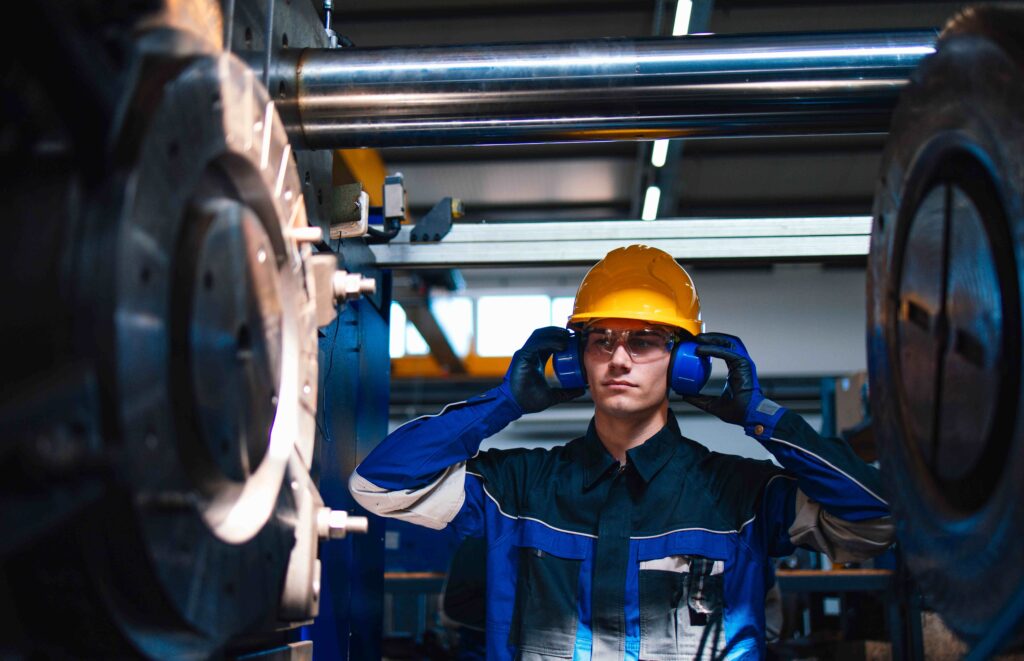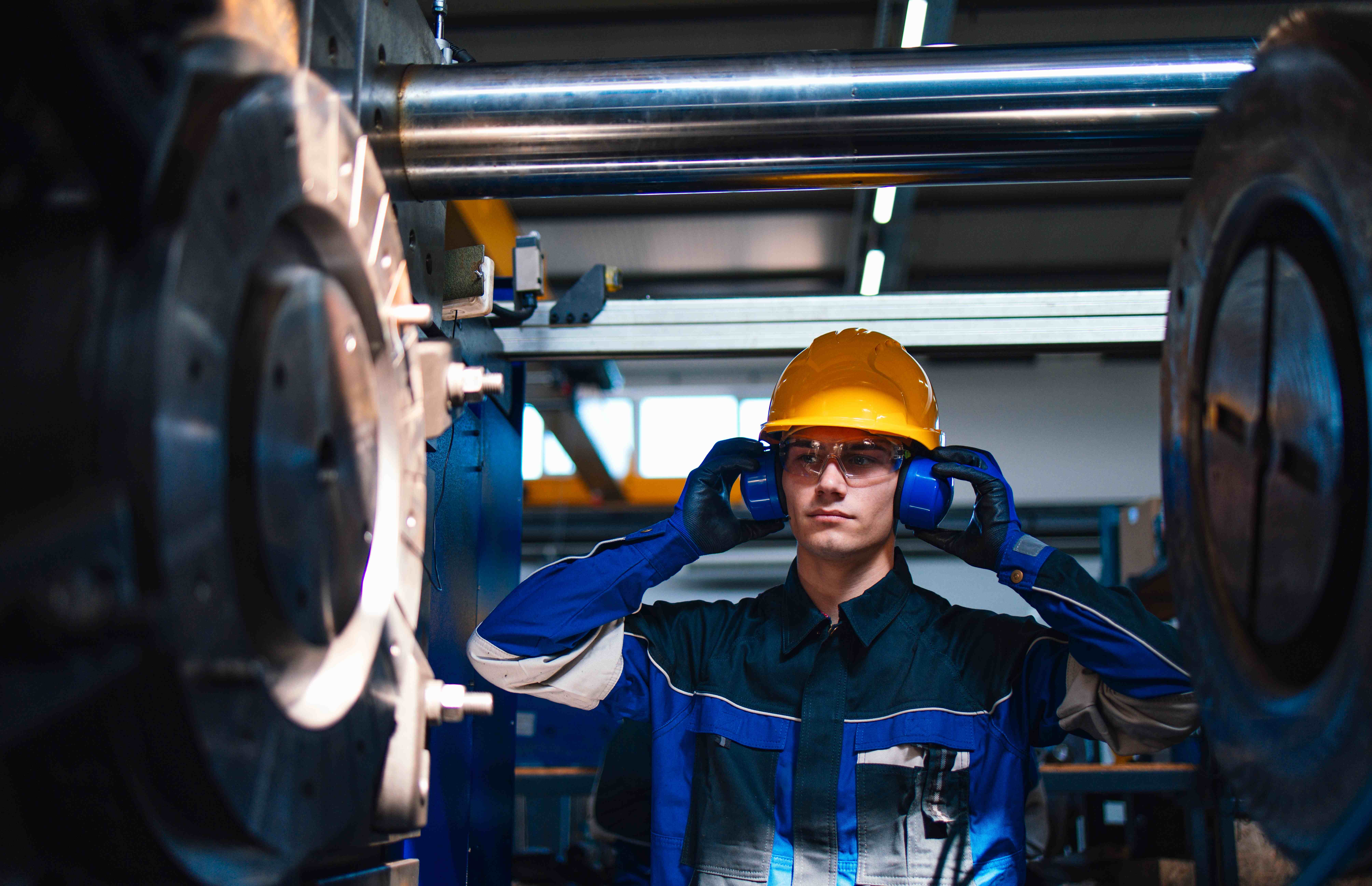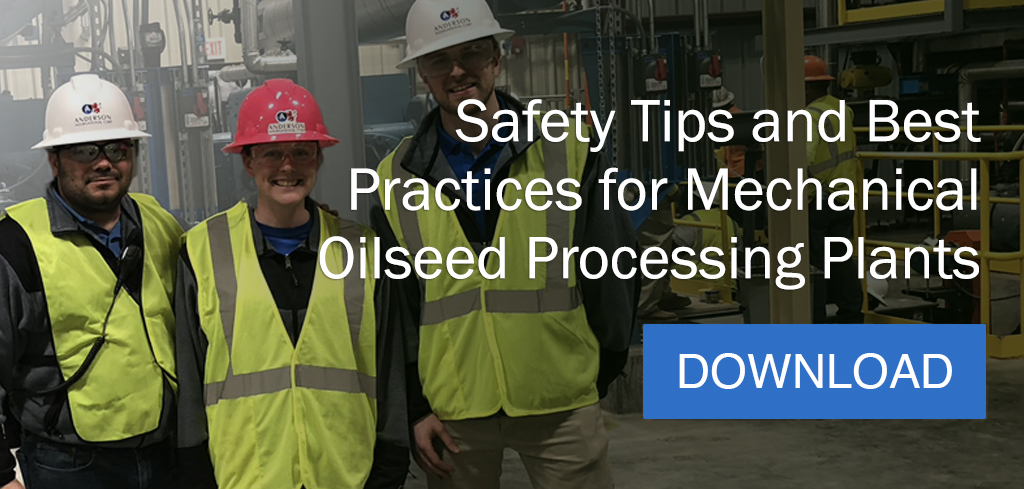
Between the heavy industrial equipment, the extreme temperatures, and the high electrical loads, manufacturing plants and processing facilities are filled with potential hazards. Without proper training, caution, and common sense, workers can quickly become devastating statistics in these dangerous environments. Recognizing the most menacing manufacturing safety risks in any facility is the first step to protecting employees and promoting mechanical plant safety.
While general manufacturing safety protocols are a good place to start, oilseed processing plants and feed mills face unique hazards and particularly unsafe conditions that require extra keen awareness. Feed mills report more injuries on average than other types of manufacturing facilities—with more than 24 injuries per 1,000 workers compared to the national average of less than two, according to the Occupational Safety and Health Administration (OSHA).
By identifying the potential hazards that threaten employee health and well-being (not to mention productivity), oil mill operators can build effective safety programs to minimize—and even eliminate—the likelihood of debilitating accidents.
Here are three of the biggest dangers facing mechanical processing plants.
1. Heavy machinery hazards
The crushing force of heavy industrial machines—like hammer mills, oil expellers, and extrusion systems—presents the most prominent safety hazards in mechanical oilseed processing plants. Each piece of equipment presents its own perils, from rotating parts and reciprocating motions that can pinch or trap workers to sharp edges that can slice or lacerate limbs.
Mechanical presses pose serious manufacturing safety risks. Amputations—particularly lost fingers—are at the top of the list of common injuries involving mechanical presses at manufacturing plants. In fact, 44% of work-related amputations occur in the manufacturing sector, and 10% occur among mechanical press operators. Roughly one in every two press injuries results in amputation, underscoring the importance of prioritizing mechanical plant safety. Safety measures plants can implement to protect workers include:
- Keep your hands away from machinery while it’s running.
- Only operate equipment with safety shields and guards in place.
- Always wear proper personal protective equipment (PPE).
Also read: Scheduled Maintenance Turnaround Planning for Oilseed Processing Plants
2. Grain handling dangers
Feed mills and other grain handling facilities face special occupational hazards that don’t necessarily endanger other manufacturers. For example, the dust produced by grain milling operations can combust and cause deadly explosions if ignited. Even prolonged inhalation of grain dust can be harmful, making feed mill workers more likely to develop nose cancer and other respiratory illnesses.
Beyond the risks of combustion and breathing problems, other dangers are hiding in grain storage bins, silos, and tanks. Employees must be specially trained to enter these confined spaces, where grain can bury workers within seconds, just like quicksand. Falling is a common manufacturing safety risk at any facility, but falling into a silo full of grain can be perilous. OSHA issues more citations to grain processing facilities for falling hazards than any other safety violation.
3. Noise level threats
The roar of motors, seed dryers, and other industrial equipment isn’t harmless background noise; this commotion can seriously impact mechanical plant safety. Prolonged exposure to high-decibel sounds in a typical processing plant can cause permanent hearing damage to workers without proper PPE.
OSHA requires hearing protection when noise levels exceed 85 decibels, which is approximately the volume of the average household garbage disposal or a typical milling machine. Mechanical equipment that’s not properly maintained could run even louder, putting employees at increased risk of hearing loss.
Also read: Transforming a Crude Oil Refinery into a Soybean Crush Plant
Mitigating manufacturing safety risks
After thoroughly assessing your oilseed processing operation to identify the most likely safety hazards, you can implement appropriate policies and procedures to mitigate these risks. Regular safety training can reinforce these protocols throughout your facility, equipping employees with the knowledge and skills needed to navigate the potential dangers of their daily workflow safely.
The most effective manufacturing safety programs take a proactive approach to protecting workers, promoting productivity, and building a culture of safety. Mechanical plant safety requires the buy-in and commitment of every employee to maintain a safe work environment. With over a century of experience designing and supporting safe, productive grain processing systems, Anderson International can help operators implement effective mechanical plant safety programs to minimize accidents and maximize production.

